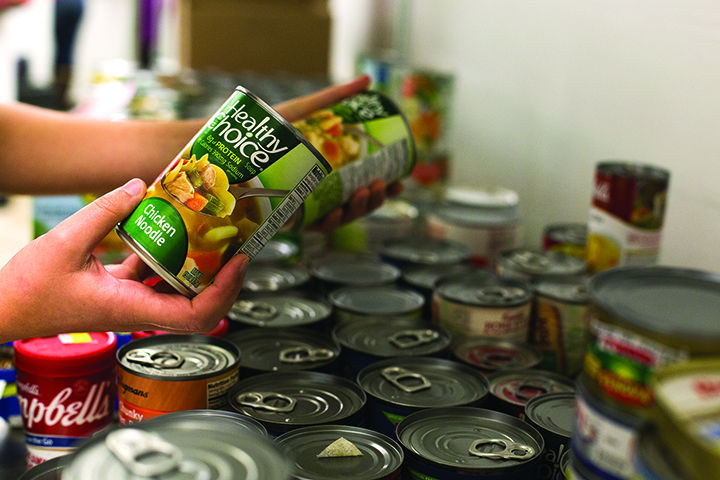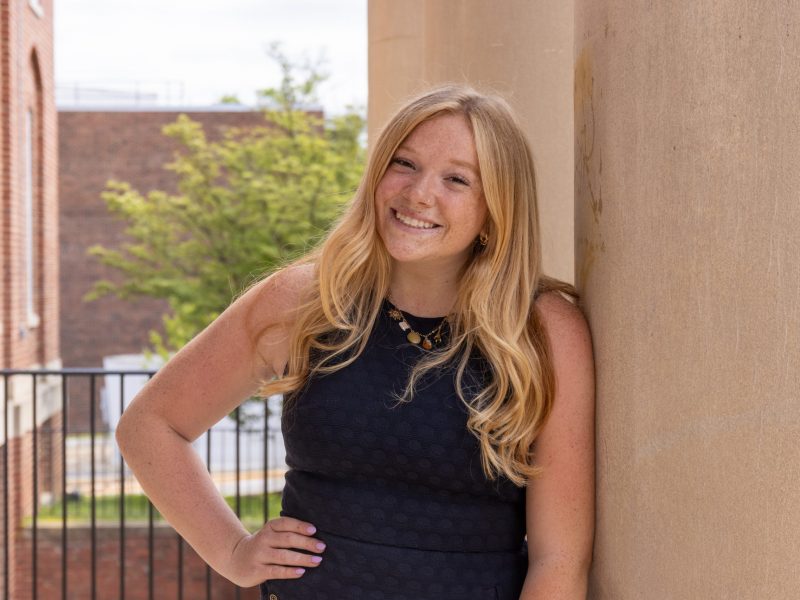When Jasmine Everett applied for a teaching position, she said it was important to her that her students eat breakfast every day before they came to school.
“If that meant me providing food for them, I would, because I know how important eating is for concentration in school,” the senior family science major said.
Everett is one of 10 family science students who are learning firsthand about food insecurity this semester while interning with Campus Pantry, a Dining Services program that collects and provides emergency food to students, faculty and staff.
The internship program launched this semester in collaboration with the family science department in the public health school.
“We’re hoping that the [internship] helps to better integrate and get students more aware of the program, because we actually have students helping guide us about how we do that,” said Allison Lilly, Dining Services’ sustainability and wellness coordinator and Campus Pantry supervisor.
Family science students are required to complete a 120-hour internship before graduation, which Lilly said is fulfilled through time spent at Campus Pantry, where interns work 10 hours per week.
“We’re doing a lot more than I expected to do on an internship, because it’s not like, ‘Oh, you’re an intern, make coffee and run errands,'” said senior LaShawnda Walker, a family science major. “We’re actually helping in the process of how to better the pantry, and so we’re involved in that discussion and our ideas are actually being used.”
The interns coordinate donation pickups every Monday and work in the pantry during distribution hours, either Thursday from 3 to 6 p.m. or Friday from noon to 3 p.m. Campus Pantry alternates between Thursdays and Fridays each week to accommodate more customers, Lilly said.
Outside the pantry, interns work on the organization’s social media, customer satisfaction surveys and food drives, senior family science major Diamond Greene said.
The students are also enrolled in a class for the internship, which Lilly said includes seminars, guest speakers and class projects. The class is focused on food insecurity and discusses food culture and the importance of having a wide variety of options, Walker said.
Everett said the class has made the interns “little experts” on food insecurity, but also has helped her connect with more students within her major.
“I’ve always been really quiet in my classes, so I’ve been able to get to know other people in my major, and we’ve been able to help each other through our last semesters of school,” she said.
Lilly said the program will continue and should help keep the pantry open during the summer for the first time.
“That’s something that we’re really hoping to grow into, because those financial worries don’t necessarily go away during breaks, and sometimes it can be worse for people,” she said.



